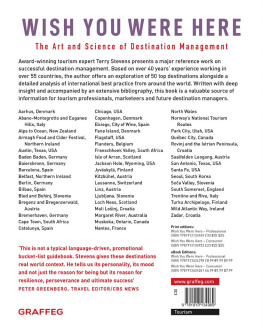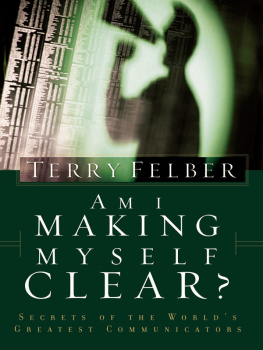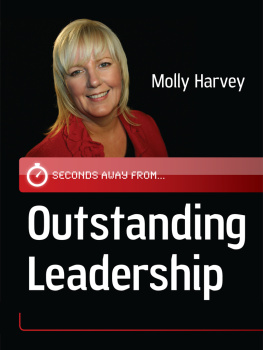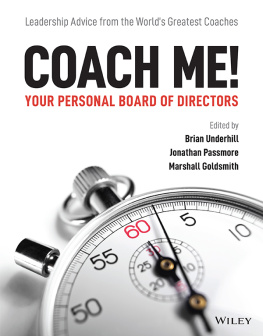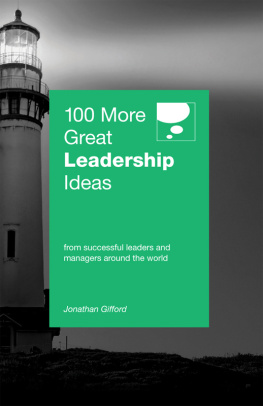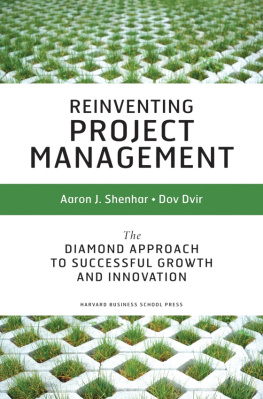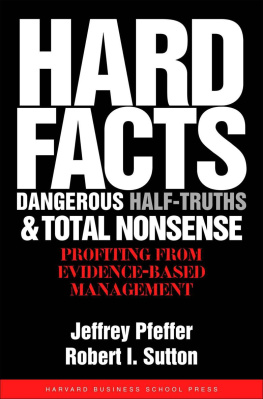Copyright 2012 by Terry Leahy
All rights reserved.
Published in the United States by Crown Business, an imprint of the Crown Publishing Group, a division of Random House, Inc., New York.
www.crownpublishing.com
CROWN BUSINESS is a trademark and CROWN and the Rising Sun colophon are registered trademarks of Random House, Inc.
Originally published in hardcover in Great Britain by Random House Business, an imprint of the Random House Group, Ltd., London, England, in 2012.
Library of Congress Cataloging-in-Publication Data is available upon request.
eISBN: 978-0-7704-3570-7
Jacket design by Nupoor Gordon
v3.1
To Alison
Contents
PREFACE
W hen I joined Tesco as a raw but eager marketing man back in the 1970s, the supermarket chain was very much the poor relative in British retailing. Struggling to shake off its reputation as a discount store, it sold only food and it had no presence beyond the shores of the UK. Although it grew rapidly during the 1980s, in the mid-1990s it was still lagging behind the giants of Britains high street: Sainsbury and Marks and Spencer. When I left Tesco in 2011, after 14 years as Chief Executive, the company had grown to be around six times larger than both companies. Now the third largest retailer in the world, with over 6,000 stores and operations in 14 countries in Europe, the United States and Asia, Tesco has access to more than half of the worlds population, selling everything from cereal to insurance, mobile phones to bananas, clothes to iPads, in store and online, to millions of customers every week.
Tescos turnaround, one of the most remarkable stories in British business, was thanks to a combination of factors: a relentless focus on delivering value to customers so as to earn their loyalty; constant innovation loyalty cards, retail services, new formats; and, above all, a will on the part of its staff to succeed.
I had no intention of writing a book. I have to thank Danny Stern for encouraging me to develop ideas I had used for a series of talks into a book on management. My editor Nigel Wilcockson was a delight to work with. He was always encouraging, and I marvelled at his ability to shape my efforts into a coherent structure and style. I cant thank George Bridges enough: he was a constant support, providing invaluable help, advice and suggestions.
I have been very lucky to have worked at Tesco, and could not have chosen better people to work with. To name them all would require a book in itself. To name but a few would cause needless offence to those whom I omit. I cannot begin to number the many certainly, hundreds of people who helped me at Tesco over 30 years. Most offered small acts of kindness; many gave significant help; some friends and colleagues offered years of patient support and guidance.
Most of all I have to thank my wife Alison and our children Tom, Katie and David, from whom I have only known love, support and laughter.
INTRODUCTION
T he room was full of the men and women who run the British government. The question these senior officials asked me was the same one that I have faced time and again. So how did you do it? What was it that turned Tesco from being a struggling supermarket, number three retail chain in the United Kingdom, into the third largest retailer in the world?
Its quite simple, I said. We focused relentlessly on delivering for customers. We set ourselves some simple aims, and some basic values to live by. And we then created a process to achieve them, making sure that everyone knew what they were responsible for.
Silence.
Polite coughing.
Someone poured out some water.
More silence.
This was the Civil Service at its most civil. Was that it? an official finally asked. And the answer to that is yes.
This book is about the lessons I learnt as Tesco grew. Some of what follows may strike you as simple and obvious. Yet as I have met and worked with people from different cultures worldwide, I have been struck by how basic, simple truths about life not just business have been forgotten or are dismissed as too obvious to matter by clever people who mistake simple for simplistic. We have allowed ourselves to think that, because the world in which we live is complicated, the solutions to problems must be complicated as well.
This leads many people to think that as they are powerless to overcome the problems they face, solving them is someone elses problem your boss, their boss, the countrys leader, the United Nations: anyone but them. Meekly agreeing that the world is a difficult place and challenges are too difficult to overcome, they think that ambitions are too far-fetched to achieve. Whether it is in business or politics, the private sector or the public sector, too many people accept their lot. It is time to think again.
Yes, the world is complicated. Some of the global challenges we face population growth, climate change, how to regulate a global economic system are, of course, complex problems. In business, the impact of the digital revolution, the labyrinth of regulations and laws, the intricacies of the financial markets all these things and more make life a tangled web. Yet whether it is tackling a global challenge or a companys management problems, good, durable solutions are simple solutions. They are ones that we can all understand and, more often than not, they are based on clear values and principles that everyone can grasp.
I learnt those basic lessons as we turned Tesco into the company it is today, overcoming some of the complex challenges we faced. This book is an attempt to share these lessons with you. I have grouped my thoughts around ten words, which together form the barest essence of what my experience has taught me. I suspect this wish to distil ideas to their simplest form does reflect something about me: I am described as being blunt and to the point. Thats true: when something matters I say things as I see them, which at times may cause offence, but avoids misunderstanding.
And that brings me to what this book is not.
It is not a history of my career at Tesco, although obviously what follows is rooted in my experience working there for more than 30 years. The Tesco story continues, and my part in it was just that: a part. Tescos success as I hope you will see from what follows is not thanks to one person, but hundreds of thousands of people, working hard together towards a common goal. Any book about my career might risk giving the impression that Tescos , if that is the case. Hubris is a common fault, and one I hope to avoid.
You cannot run a business without making mistakes and I certainly made my fair share: my first advertising campaign as Marketing Director; our failed attempt to create restaurants in our stores; our unsuccessful launch in Taiwan. The list is long. It also reflects the fact that business is all about taking risks. Decisions that involve no risk are not decisions that will enable your business to grow. The trick is to learn from mistakes so that they dont prove fatal.
If I were put on trial for the errors I made at Tesco, Im sure my lawyer would be able to mount a defence for some and have to enter a guilty plea for others. My purpose in this book, however, is not to promote or defend decisions I made, but to impart the lessons I learnt over the course of my career. Ill leave it to others to be the judge and jury.
Nor is this book just about retailing although many of the lessons are rooted in retailing. I hope the lessons are applicable whatever you do, wherever you work. Do not read the words the customer and think I dont have customers, so this is irrelevant to me. Almost every organisation has a customer. In the private sector, some companies may talk about their clients or buyers: they are customers. In the public sector, although often no money passes hands, citizens are usually customers of the services they use, having paid for them through their taxes. I write usually as sometimes there is no choice of service: citizens have to accept what the states organisation gives them. If they are to succeed, even these organisations must have clear aims, processes and some of the other characteristics I will address later.


